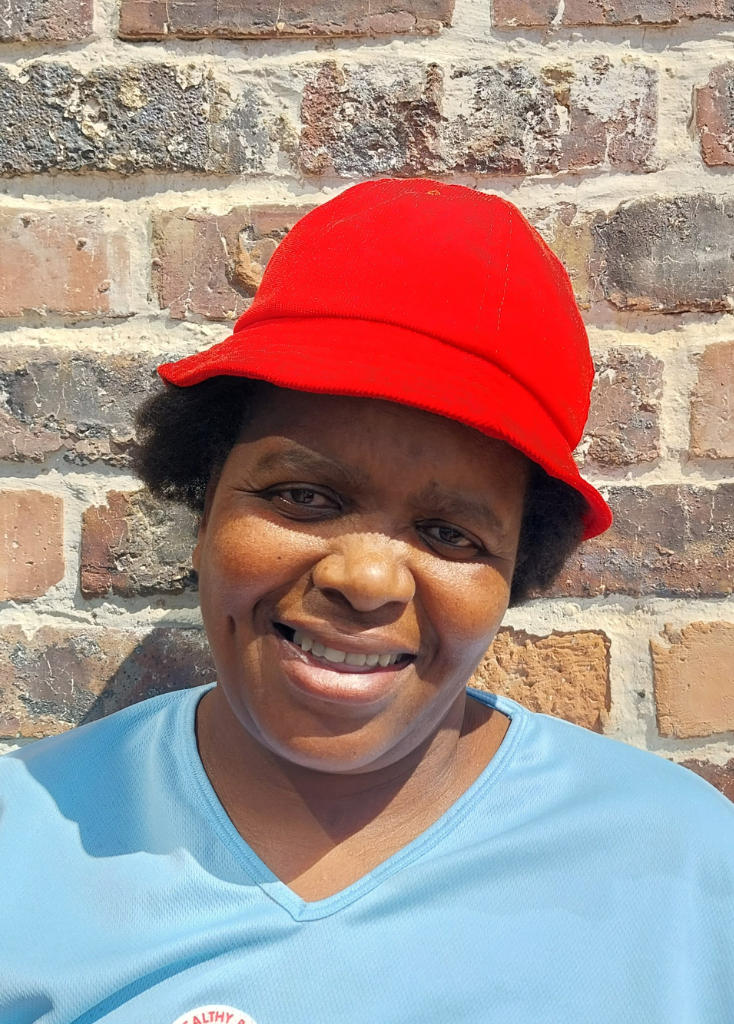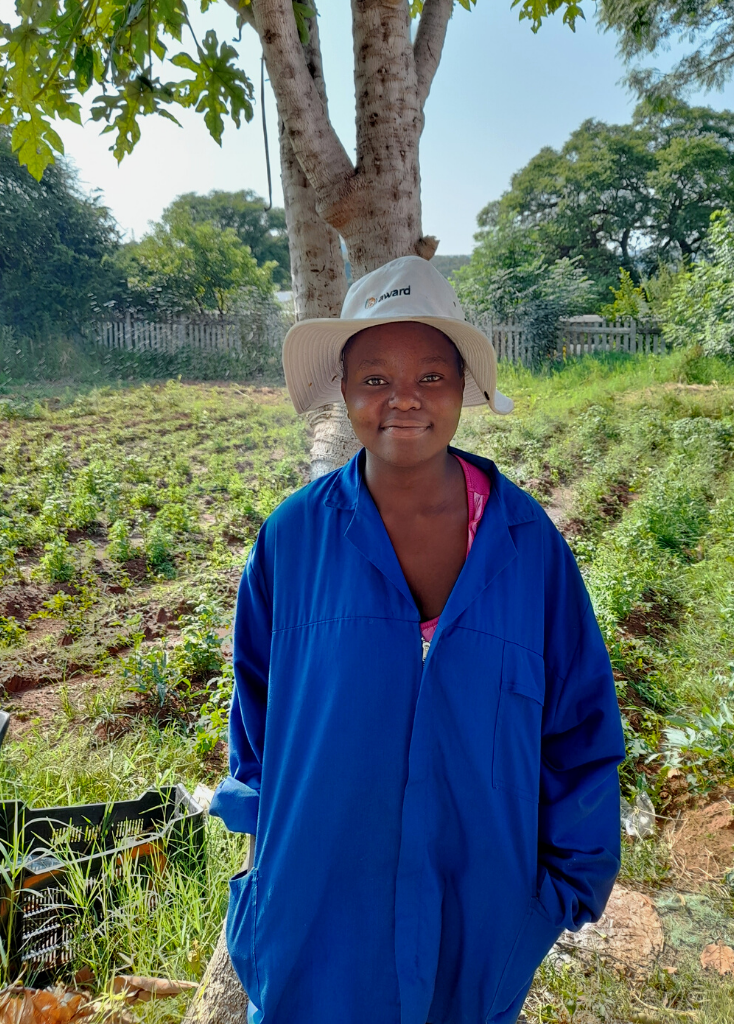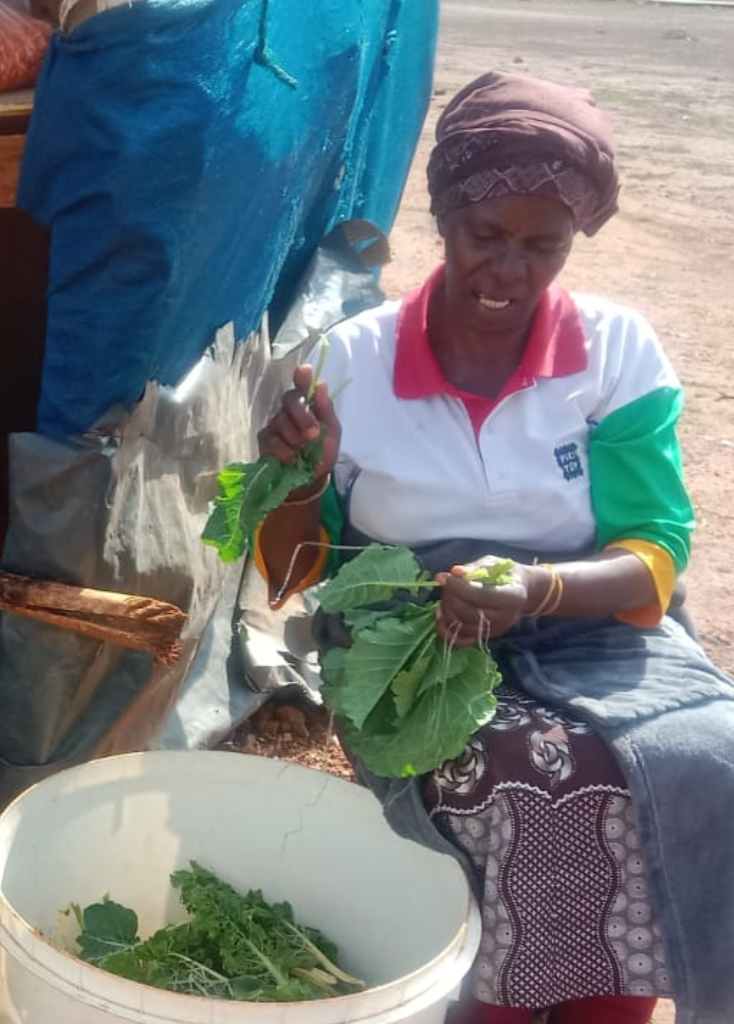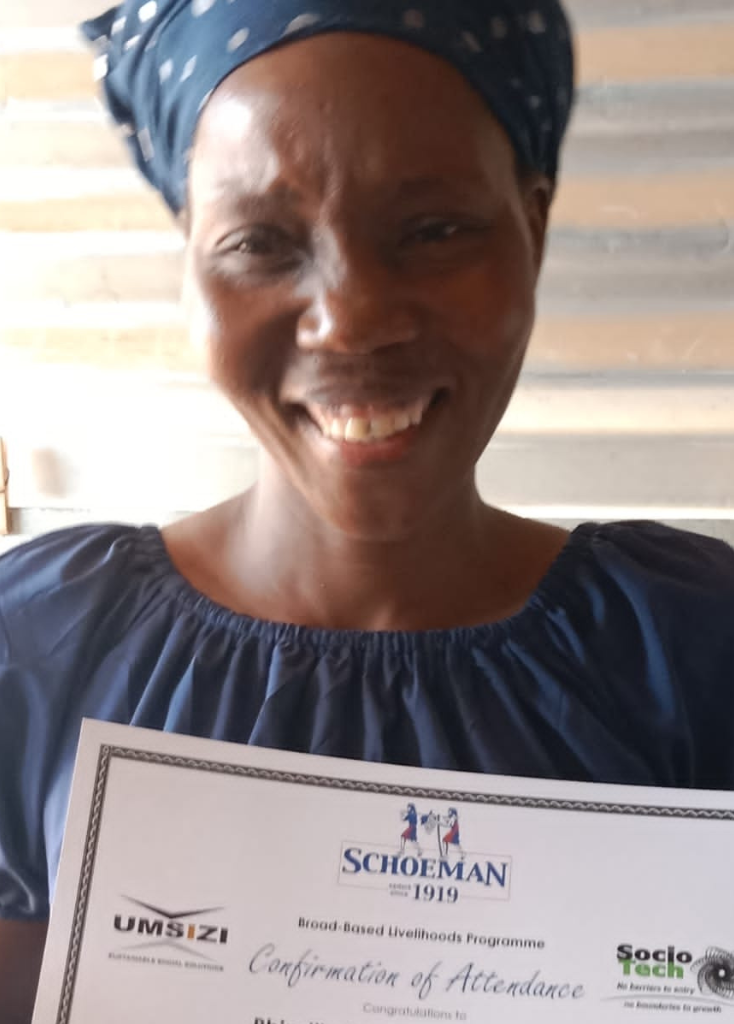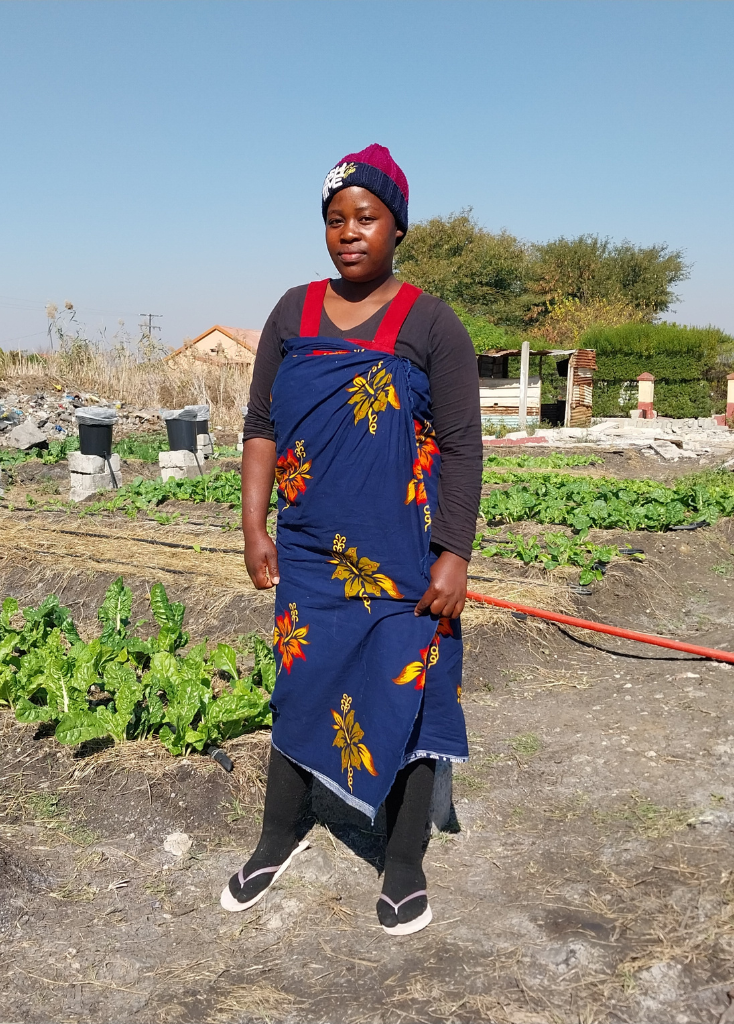
BBL PARTICIPANT: Nomalanga Makhoba, Tshepisong, Gauteng Province
In a Nutshell
Through her participation in SocioTech’s Broad-Based Livelihoods (BBL) strategies to stimulate personal economic activity, Nomalanga Makhoba from Tshepisong, Gauteng has not only learnt farming and business skills but also changed her self-perception.
She says…
I was born in KwaMashu, but my family moved to Balfour in Mpumalanga when I was about 6 years old. That was in the late 1970s when KwaMashu was very unsafe. My father had a job as a driver at the Grootvlei power station, so we came to join him. It was a nice place to grow up. There was 1 street, 1 police station, 1 Sotho school and 1 Zulu school. My father had a small vegetable garden, but as a child I didn’t work in it very much. All my gardening training came much later when I met the people from SocioTech.
I first came to Joburg looking for work in 1999. I worked first at Woolworths in Jeppe Street. From there I went to the branch in the Maponya Mall but in 2004 I didn’t see eye to eye with management and I decided to leave. I had always been interested in serving my community, so I went into politics. For over a decade I was on the Ward 50 committee. During that time, I learnt so much. Community work isn’t about talking. It is about listening, observing, and understanding. It is about issues, not petty personal squabbles. Put aside your personal feelings and focus on the issues. That is not always easy to do but if you want to serve you need to work at making sure you do that every day.
I first learnt about SocioTech through a community sms. We were called to a meeting and there was a lot of excitement and interest. There were over 50 participants at the first meeting, but the enthusiasm didn’t last. People want speedy things and they thought that they were going to get given farming tools. Building something with your own hands was not what they had in mind.
"If you do the work, you get the rewards. "
Even those people who made it through the first few sessions were surprised at how hard the first part of the process was. I include myself in that group. Digging trenches is exhausting. I used to come home from a long day digging and be too tired to even make food for my family. By the time we graduated, only 13 of us were left. I am really sorry that those other people didn’t continue because the SocioTech method works. If you do the work, you get the rewards. It has changed so much in my life.
It is early days - I am only on my second harvest, but I have a plan and I think that it is working. I have 12 trenches and I am selling my crops. My plan is to gradually expand production so that I can start selling to the street vendors in bulk and then I hope that in about 3 years I will be ready to supply supermarkets. At the moment people come into my garden to buy, but I know that I need to start marketing in order to grow the business. I am going to do old school marketing and new techniques too. In terms of traditional ways to get business, my plan is to put a table in front of my house so that I can have a display to attract customers. I know that the beautiful aroma of those fruits and vegetables will encourage people to buy. In terms of more modern methods, maybe Facebook is the way to go.
The SocioTech training has even changed the way that I see myself. I used to think of myself as a politician. Now I can see that my future is in business. I am no longer on the ward committee, but I am still committed to helping my community.
I have already trained 15 extra people through the Phinda-Phinda programme, and I see myself creating opportunities for others, growing the economy, and making jobs in the future. It feels like I was sleeping and now I am wide awake. I have seen the light and I know what I must do.



